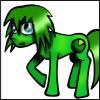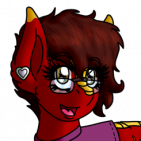Does MLP has much complexity for children?
-
Similar Content
-
- 0 replies
- 177 views
-
Does My OC look like a mare with the Rounded muzzle. Or do the colors I use make it look enough like a stallion
By fim y,
- art
- my little pony
- (and 1 more)
- 1 reply
- 177 views
-
- 0 replies
- 186 views
-
- 18 replies
- 523 views
-
- 3 replies
- 207 views
-
-
Recently Browsing 0 members
- No registered users viewing this page.




.thumb.png.6c71be719dfe49e56452731b456fc53f.png)


Recommended Posts
Create an account or sign in to comment
You need to be a member in order to leave a comment
Create an account
Sign up for a new account in our community. It's easy!
Join the herd!Sign in
Already have an account? Sign in here.
Sign In Now